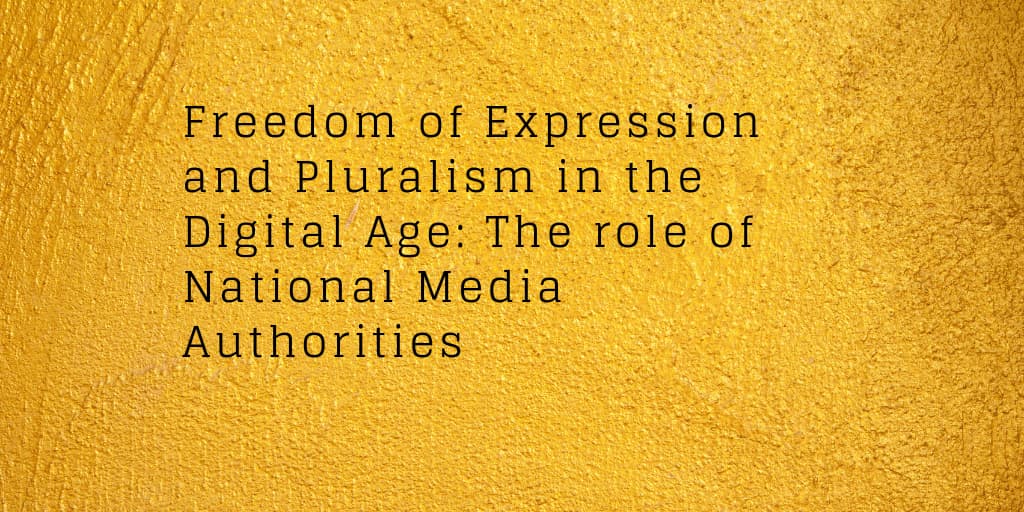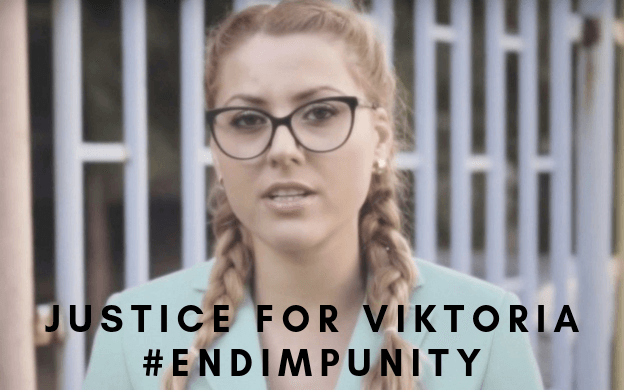
Read more
Discussion Series, News
Freedom of Expression and Pluralism in the Digital Age: The role of National Media Authorities
By Adriana Mutu Department of Communication Studies , Abat Oliba CEU University Following the privatisation of former state-owned enterprises and the liberalisation of markets, National Regulatory Authorities (NRAs) have become key institutional players in the...
We, the CMPF are appalled to learn of yet another shocking and brutal murder of 30 year old European journalist Viktoria Marinova in Bulgaria on Saturday 6 October. Viktoria was working for the Bulgarian TV station TVN.
Viktoria Marinova is the third female victim of four such crimes to occur in an EU Member State since the beginning of 2017 and follows the murders of Danish journalist Kim Wall, Maltese journalist Daphne Caruana Galizia and Slovak journalist Ján Kuciak and his partner Martina Kušnírová in early 2018. Viktoria was found dead on Saturday evening in the northern Bulgarian town of Ruse. The last story she was working on involved an investigation into the misuse of EU funding. Given the dangers of reporting on corruption and its particular public interest significance for the functioning of democracy, the CMPF calls for an immediate independent investigation into the merciless killing of Viktoria Marinova. Furthemore, any colleagues working with Viktoria should receive protection from the Bulgarian authorities.
Prof. Orlin Spassov, Sofia University and CMPF Media Pluralism Monitor project associate commented:
In her latest TV show, Viktoria Marinova interviewed her colleagues Dimitar Stoyanov from the Bulgarian platform for investigative journalism “Bivol” and Attila Biro who works for RISE Project in Romania. Stoyanov and Biro were recently arrested in Bulgaria while investigating corruption in the allocation of EU funds related to possible involvement of businessmen and politicians. Marinova was one of the few journalists who dared to give publicity to these investigations and who itself stated her intention to carry out journalistic inquiries of public interest. After the killing of Marinova, it is particularly disturbing to have some of the investigators hurry to assume that the murder is unrelated to her work, despite the lack of evidence for this thesis. It is also alarming that most media in Bulgaria recognised the significance of what happened only after the appearance of a strong international coverage of the murder. The lack of significant journalistic solidarity in the country reflects the state of fear and pressure in which many Bulgarian journalists have been placed. In this context, the murder will have the effect of further enhancing self-censorship, expanding the taboo themes, and the fear of doing serious journalistic investigations. Likewise, the attack on journalists will have the consequences of imposing fear, stagnation and lack of criticism in other spheres where free expression of opinion is of key importance for democracy.
The CMPF also calls on member states to implement the Council of Europe’s Recommendation of the Committee of Ministers to member States on the protection of journalism and safety of journalists and other media actors. The Recommendation requests that member states guarantee an enabling environment for journalists to practice their craft without fear; “to put in place an effective system of protection for authors and journalists; to afford protection against physical violence and intimidation; to protect life; to investigate fatalities; and the duty to prevent torture and ill-treatment” The recommendation also stresses the need of further safeguards for female journalists and the need of gender-specific provisions:
…Journalists and other media actors are often specifically targeted on account of their gender, gender identity, sexual orientation, ethnic identity, membership of a minority group, religion, or other particular characteristics which may expose them to discrimination and dangers in the course of their work. Female journalists and other female media actors face specific gender-related dangers, including sexist, misogynist and degrading abuse; threats; intimidation; harassment and sexual aggression and violence.
Any form of impunity would have a chilling effect on media freedom and freedom of expression more generally as it would discourage journalists from doing vital work. It cannot be accepted that journalists continue to be intimidated across the European Union and globally. We call on authorities in Member States to make Europe a safer place for journalists to live and work.


